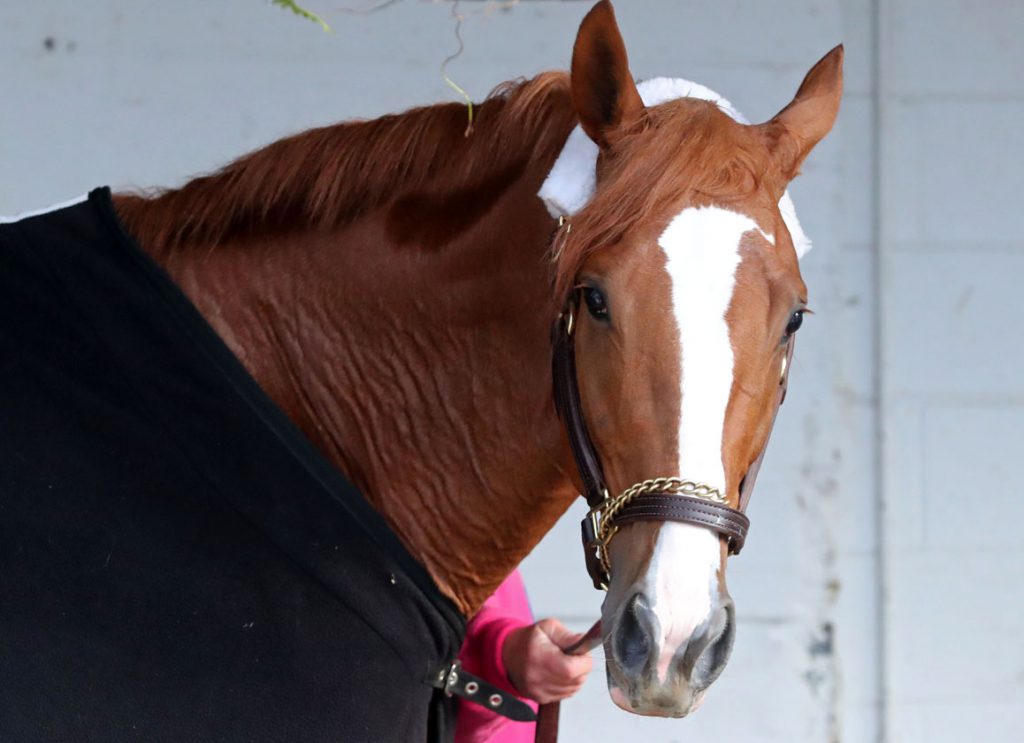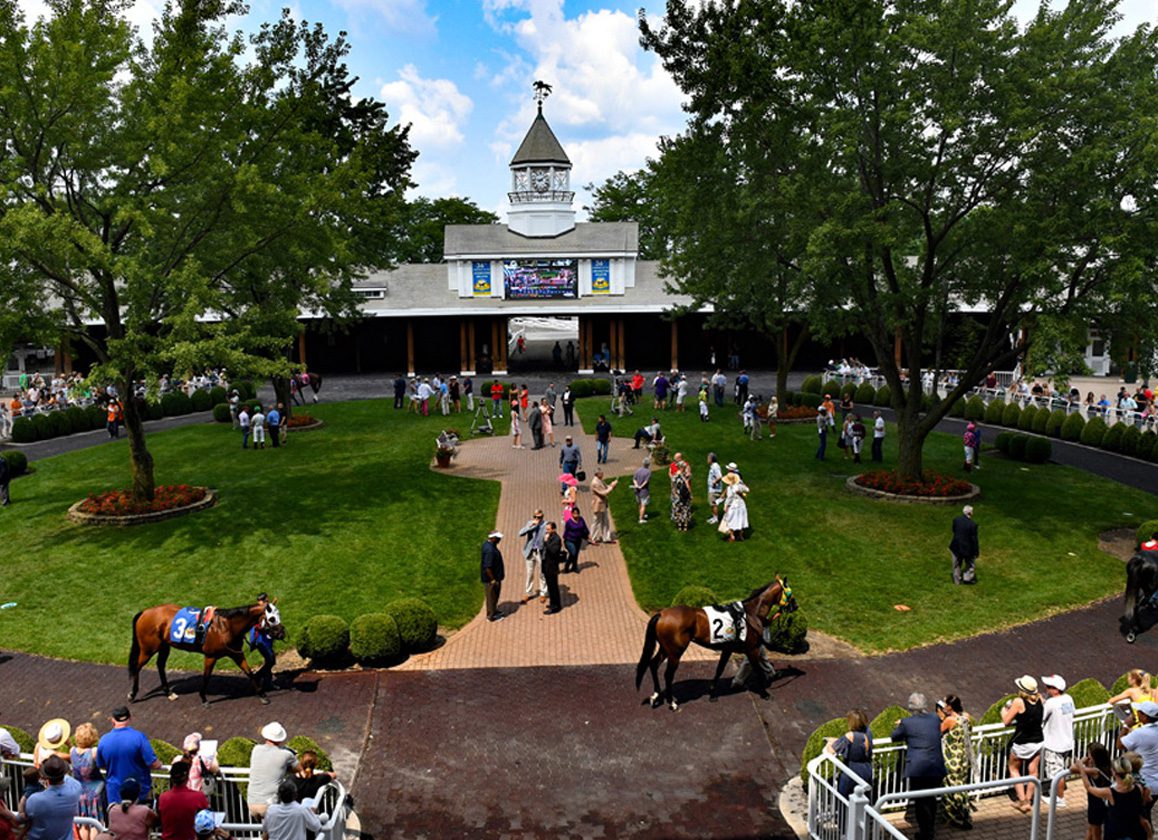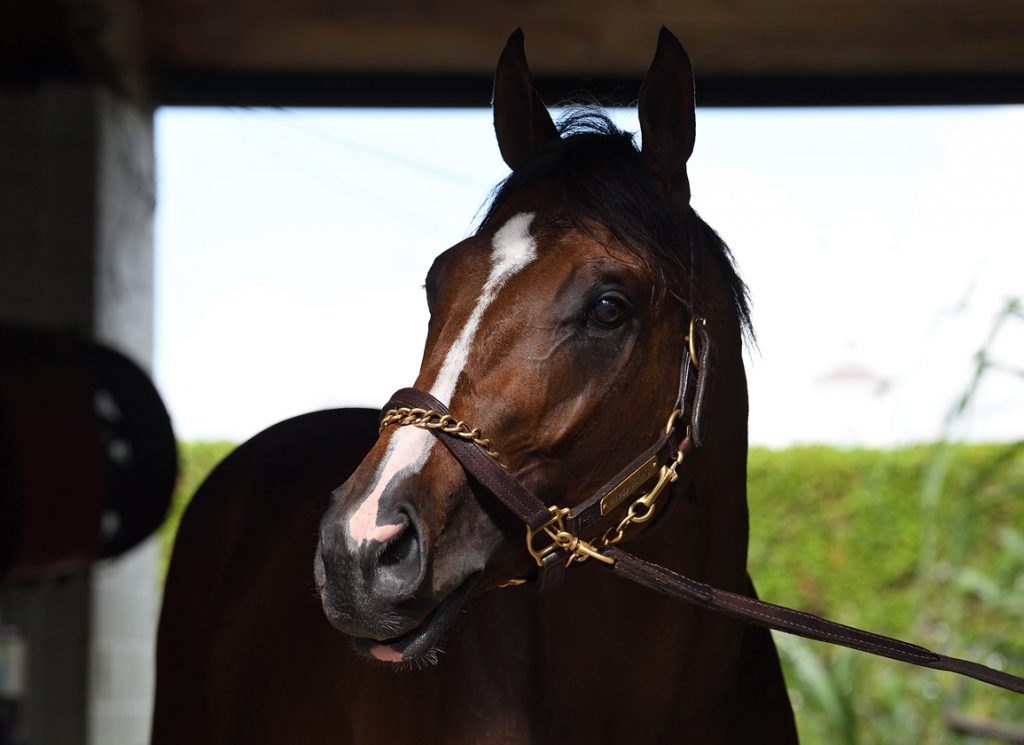By Chris McGrath
It's the transfer window over in Europe–and not just because they're between soccer seasons. They have also seen big money paid, both at auction and in private trade, to switch jockey silks at Royal Ascot this week.
A couple of the top races have been won by a significant new investor, Wathnan Racing. Apparently, the people involved were eager to maintain a low profile, but it's tricky to remain incognito when the meeting's most storied trophy is being presented by the new King of England while Frankie Dettori, that least retiring of retiring jockeys, is cavorting in your colors in the foreground.
Though unable to be present himself, the man behind Wathnan was duly revealed as the Emir of Qatar, whose brother and cousin have already been valued investors on the European Turf for some time.
The British breeders who respectively sold the Emir homebreds to win the G1 Gold Cup and G2 Queen's Vase are both indebted to the priceless heritage of British racing, which keeps it far more competitive than its internationally inadequate prizemoney would otherwise allow. Investment from overseas–whether in deals like these, or at public auction–is often the only thing that can keep a British racing and breeding program in the game.
Over the years, of course, the wider debt of horsemen everywhere to Middle Eastern investment has been incalculable. Primarily this has been animated by personal passion, for the horse. With time, however, the Maktoums also began to explore sport's value to the kind of agendas that come under the umbrella of “soft power.”

Two Phil's | Coady Photography
That's an increasingly important element in the other, far more prominent transfer window of the European sporting summer. This week A.C. Milan supporters were shocked by the abrupt defection of young midfielder Sandro Tonali to Newcastle, a British club recently catapulted into the elite by new Saudi ownership. Tonali, a boyhood Milan fan, is a born leader and nobody envisaged him being anything other than club captain a decade from now. That even he should turn out to have his price, then, will have spooked even supporters of rival clubs, who will see that no player can nowadays be considered safe from poaching by wealthier leagues. Indeed, a massive recruitment surge by Saudi Arabia's own domestic league may yet require the English Premier League, accustomed to devouring the best of the rest, eventually to have a taste of its own medicine.
In our own sport, the Big 'Cap once represented the most glittering of prizes. But nowadays its obvious candidates are more likely to head halfway round the world to contest staggering purses in the desert. While racing obviously represents a trifling branch of the soft power tree, the insouciance with which the Saudis could lay on a prize so much bigger than even the G1 Dubai World Cup means that we cannot be surprised by the recent experiences of golf and now soccer.
Yet whatever prompts the injection of cash, whether soft power or hard profit, everyone needs to remember that the lifeblood of all sport is investment of another kind: emotion. And if passion is treated as a commodity, you will ultimately invite disaffection. Because the one thing that can't be quantified on a balance sheet is the heart of a fan. That's about heritage, identity, formative experience.
This is just as true of racetracks as it is of soccer clubs. Okay, so you might make more money in the short term, for instance, by cashing out one of the most cherished spectator experiences anywhere on the Turf, at Arlington Park. But if we end up with a bunch of soulless gaming facilities, which happen to maintain ancillary ovals in front of deserted concrete sheds, then in a generation or two we won't have a sport at all.
In a world where everything is for sale, then, a horse like Two Phil's (Hard Spun) stands heroically against the tide. He reminds us that sport often depends, for fan engagement, on things money can't buy: pluck and luck.
Reverting to soccer, a lot of American investors (accustomed to sealed franchises) were perplexed when proposals for a European Super League had to be abandoned overnight after the clubs' own fans furiously rejected the removal of jeopardy. They understood, as the club owners didn't, how vital it is that even the biggest clubs, if performing badly enough, should be vulnerable to relegation; and equally that the little guy, showing sufficient merit, can supplant the underachiever.
Imagine what the Kentucky Derby would be like if restricted to horses that either cost seven figures, or homebred by six-figure covers. As it was, we could root for a blue-collar hero, whose connections had in effect been evicted from their cherished Chicago circuit by the ruthlessness of the same company that hosted the Derby.
Two Phil's was bred from the only Thoroughbred ever bought by the Sagan family (for $40,000) and was ignored by every expert in Book 1. Yet he absorbed a pace that burned off all those around him, before seeing off all bar a single closer.
Unlike Hot Rod Charlie (Oxbow), who once changed hands for $17,000 before showing a similarly big heart on the Classic trail a couple of years ago, Two Phil's was not asked to grit out another Triple Crown race. Instead, he resumes his campaign Saturday, eyeing an open sophomore championship, in the GIII Ohio Derby.
It's a hop from Lake Michigan to Lake Erie for many around his ownership crew, who will doubtless have noticed that the GIII Chicago S.–a race, it goes without saying, formerly staged at Arlington–has found its latest sanctuary downriver from Ohio, at Ellis Park, while the Churchill team deal with other issues. Their initial efforts to do so included standing down not just Lord Miles (Curlin), who also resurfaces in the Ohio Derby, but even the champion juvenile.
To that extent, at least, they understand how community engagement is crucial to commercial viability. Because the one transfer window that will never close is the one that allows fans to take their hearts–not to mention their business–elsewhere.
Not a subscriber? Click here to sign up for the daily PDF or alerts.







